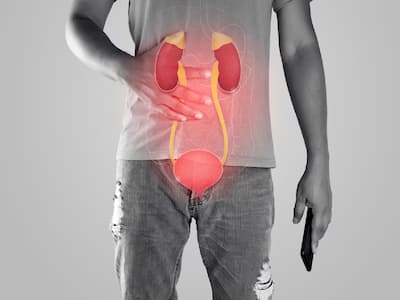
Screening for chronic kidney disease is a life-saving strategy that can substantially impact public health in India.
Chronic kidney disease (CKD) is a concern worldwide, and India is no exception. With changing lifestyle patterns, it is crucial to emphasize the importance of screening for CKD, particularly among individuals aged 35 and older. Regular screenings help identify potential risks and underlying conditions, empower patients to make informed decisions about their health and enable doctors to carefully determine the course of treatment for timely and successful outcomes. Dr Ganesh Srinivasa Prasad P, Consultant, Nephrology, Narayana Health City Bangalore, shares two essential points to consider for Healthy Kidney:
- Screening should be done from 30 years of age.
- Hypertension indicates CKD, which should be taken care of with proper follow-up with the doctor.
What Is Chronic Kidney Disease?
Chronic kidney disease is the progressive and irreversible decline in kidney function over time. It often develops silently, without noticeable symptoms until the advanced stages. Left undiagnosed and untreated, CKD can lead to complications like kidney failure, cardiovascular disease, and premature death. Early detection through screening plays a pivotal role in mitigating these risks.
Prevalence Of CKD In India
India currently grapples with a significant burden of CKD. The prevalence of CKD in India ranges from 6% to a concerning 17%, depending on the region and population. Disturbingly, this burden is increasingly affecting younger individuals due to lifestyle factors such as sedentary habits, unhealthy diets, tobacco use, and obesity. The early onset of CKD necessitates the implementation of proactive screening measures.
READ RELATED: 5 Tips To Elevate Your Nutritional Status This Independence Day
Recommended Screenings
- Blood Pressure Measurement: Regular blood pressure monitoring is essential, as hypertension is a significant risk factor for CKD. Early detection and management of high blood pressure can help preserve kidney function.
- Lipid Profile: Elevated cholesterol levels can contribute to kidney damage. Assessing lipid levels can help identify at-risk individuals and initiate appropriate interventions to maintain kidney health.
- Diabetes Screening: As diabetes is a leading cause of CKD, individuals should undergo blood glucose testing to screen for diabetes or assess glycemic control if already diagnosed.
- Blood Tests: Kidney function tests should be performed. These tests assess the filtration capacity of the kidneys and detect any abnormalities in kidney function.
- Urine Testing: Urine analysis, including checking for proteinuria (abnormal amounts of protein in urine), can provide valuable insights into kidney health.
The Way Forward
Screening for chronic kidney disease is a life-saving strategy that can substantially impact public health in India. The rising prevalence of CKD, especially among the younger population, calls for urgent action. By implementing comprehensive screening programs targeting individuals aged 35 and older, we can detect CKD early, initiate timely interventions, and save lives.
Total Wellness is now just a click away.
Follow us on
Don’t Miss Out on the Latest Updates.
Subscribe to Our Newsletter Today!
window.addEventListener(‘load’, (event) => {
$(‘#commentbtn’).on(“click”,function(){
(function(d, s, id) { var js, fjs = d.getElementsByTagName(s)[0]; if (d.getElementById(id)) return; js = d.createElement(s); js.id = id; js.src = “//connect.facebook.net/en_US/sdk.js#xfbml=1&version=v2.3”; fjs.parentNode.insertBefore(js, fjs);}(document, ‘script’, ‘facebook-jssdk’));
$(“.cmntbox”).toggle();
});
});








